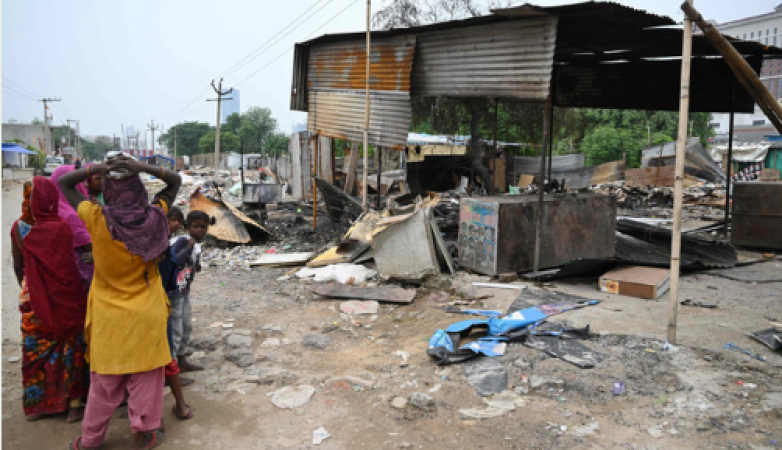
New Delhi: Local authorities in Haryana, a state in northern India, have started demolishing what they call illegal homes that they claim were involved in an earlier this week attack on a Hindu procession that resulted in deadly clashes between Hindus and Muslims throughout the state.
The violence started on Monday in the Nuh district and quickly spread to nearby communities, including the commercial hub Gurugram, which is close to New Delhi and where some vehicles, a mosque, and some scrap shops were set on fire as well as several restaurants.
The clashes resulted in seven fatalities, including two police officers. Since the clashes, Nuh's top police official, Narendra Singh Bijarniya, has said that police action would be taken against homes that were used to throw stones at the procession.
Also Read: Daesh confirms the passing of its leader and names a successor
Hindu-Muslim tensions that had been building in the area since 2015, when the Hindu nationalist Bharatiya Janata Party (BJP) won both the national election and the state of Haryana, came to a head with the violence.
The clashes, according to police spokesperson Krishan Kumar, brought attention to the houses that authorities had discovered were being built illegitimately on public property. Officials claimed there was no information on the number of buildings destroyed, but local media claimed over 200 homes were levelled.
Aftab Ahmed, an opposition Congress party lawmaker from Nuh, questioned the action.
Also Read: US Considers Deploying Armed Personnel on Commercial Ships to Thwart Iranian Seizures
He referred to the fact that the trial was taking place before any court convictions by saying, "This is a short (quick) trial taking place, which is not allowed under any law. Authorities in some states controlled by the BJP have recently destroyed what they refer to as "illegal" homes belonging to criminal suspects, many of whom were Muslims.
Also Read: GCC Chief Emphasizes Vital US Partnership to Safeguard Maritime Navigation Freedom
Supporters of the BJP have applauded the trend as providing instant justice, but political opponents and rights organisations have condemned it as a way to get around the legal system.